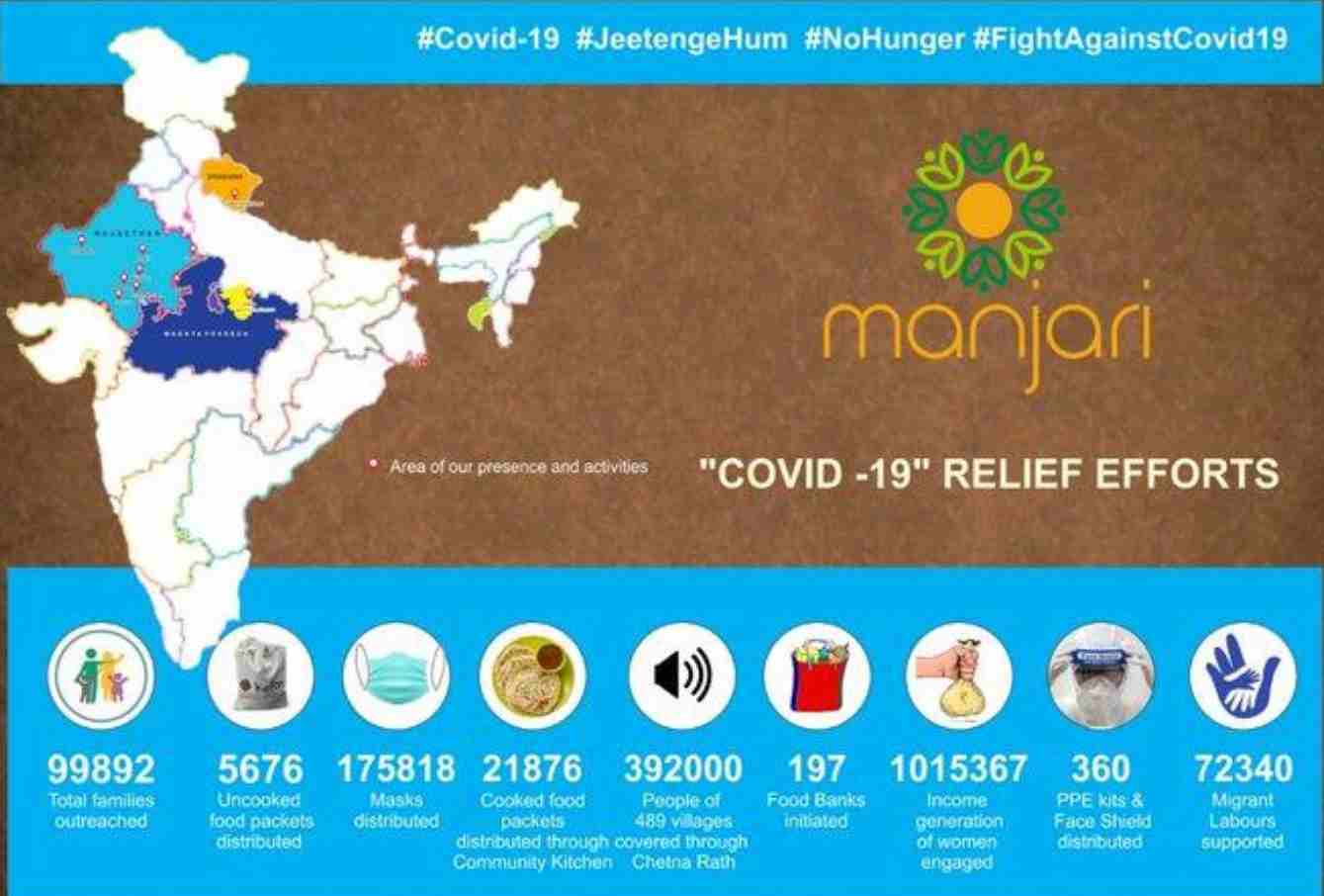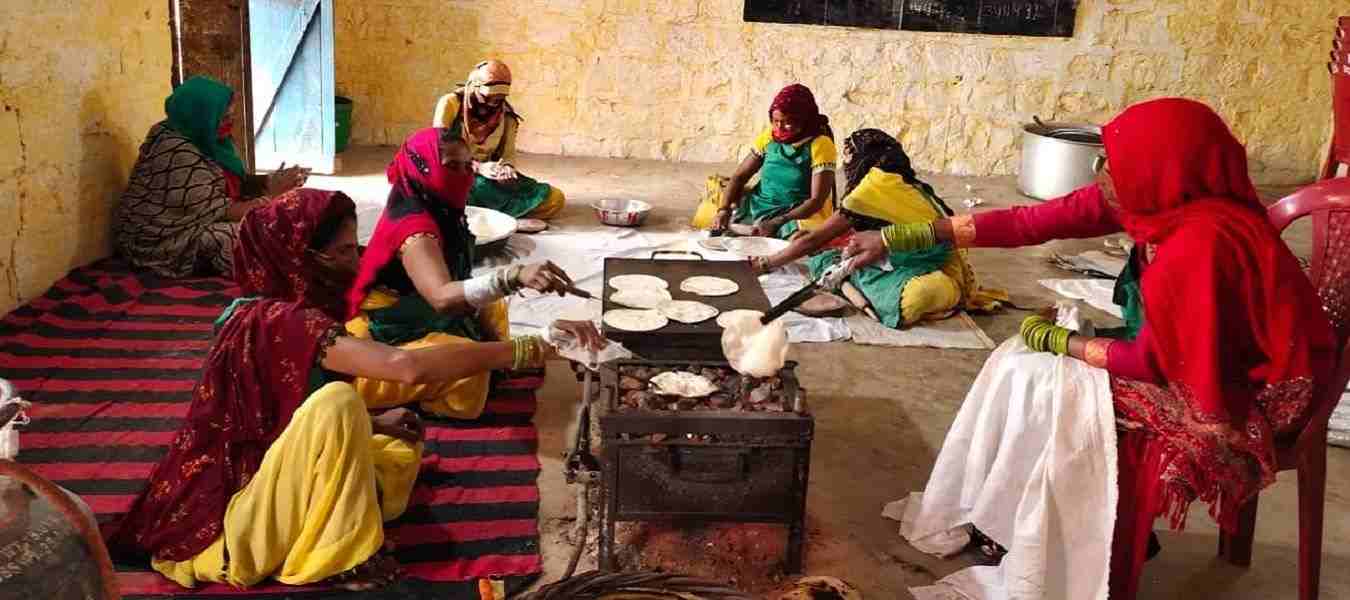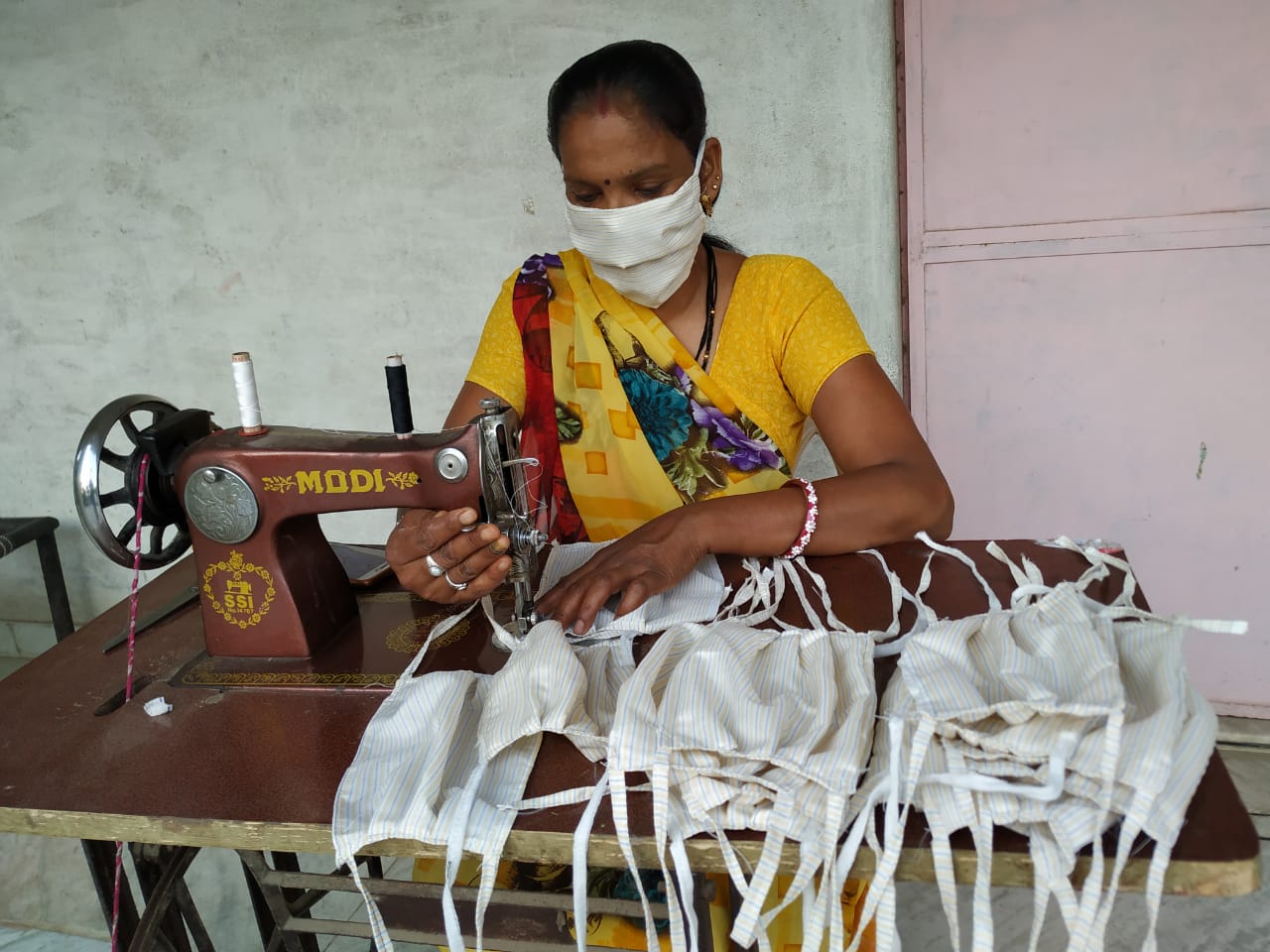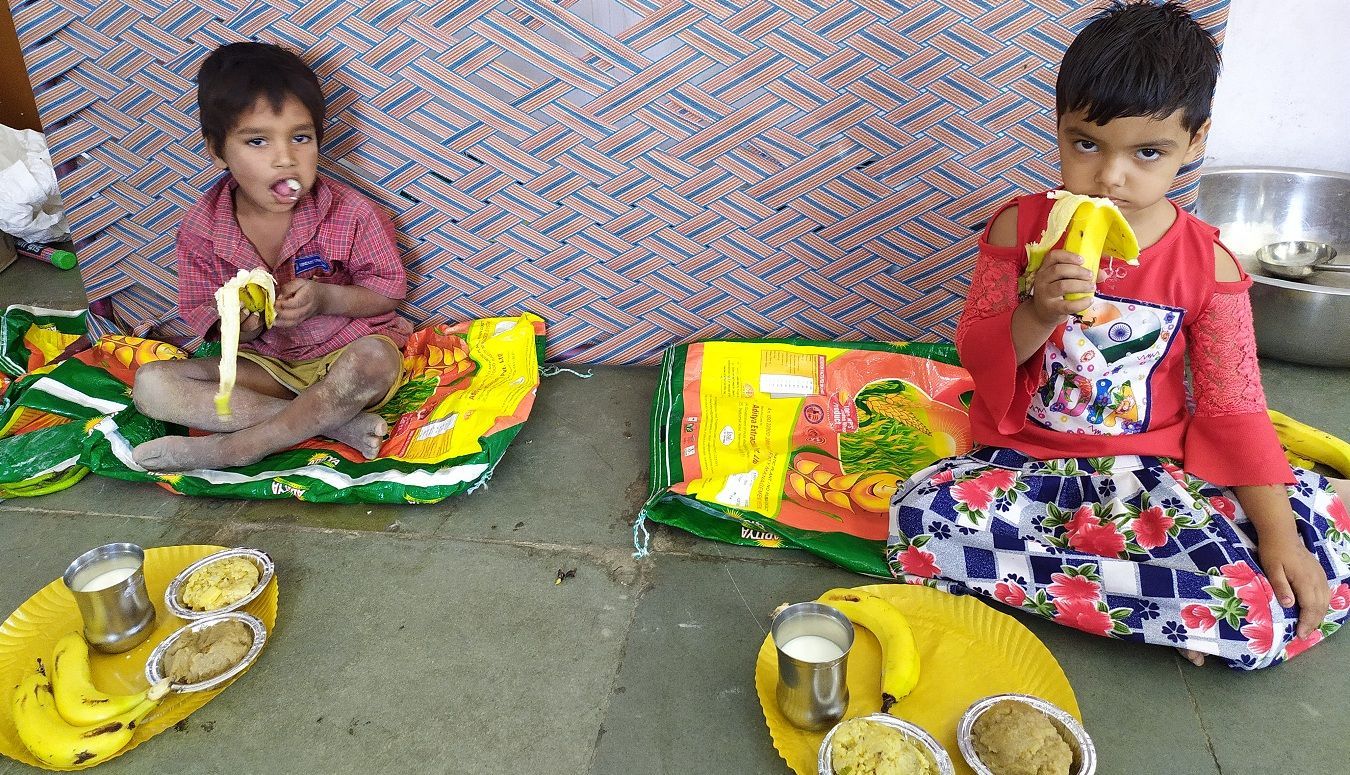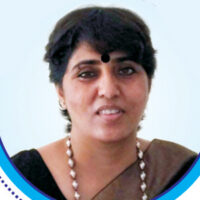Emergency Humanitarian Relief Restoration of Economy Through Livelihood Promotion
In early 2020, the country faced an unprecedented disaster in the form of the COVID-19 (Coronavirus) threat. As social distancing is the only solution to contain the spread of COVID-19, our government, on 22nd March 2020, announced a 21 days lockdown which was further extended till 3rd May 2020.
The lockdown had some serious economic and social impacts that threatened the very survival of marginalized & vulnerable people. Families dependent on daily wages for food & other essential items lost their livelihoods and could not access even the most essential food items.
In this difficult time, as a social development agency, our team conducted a rapid assessment of requirements in our project locations with local administration and accordingly planted our response teams on the ground.
